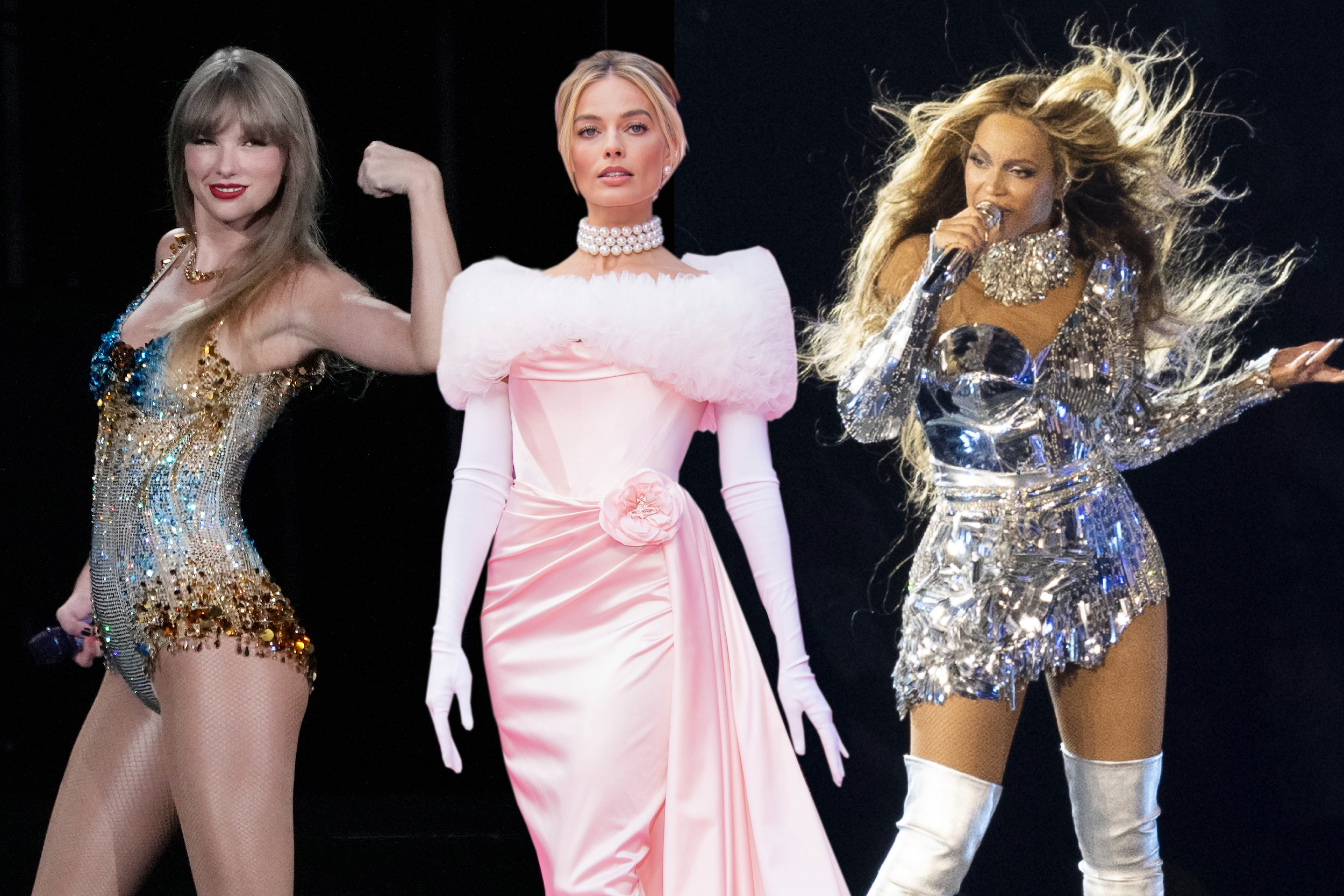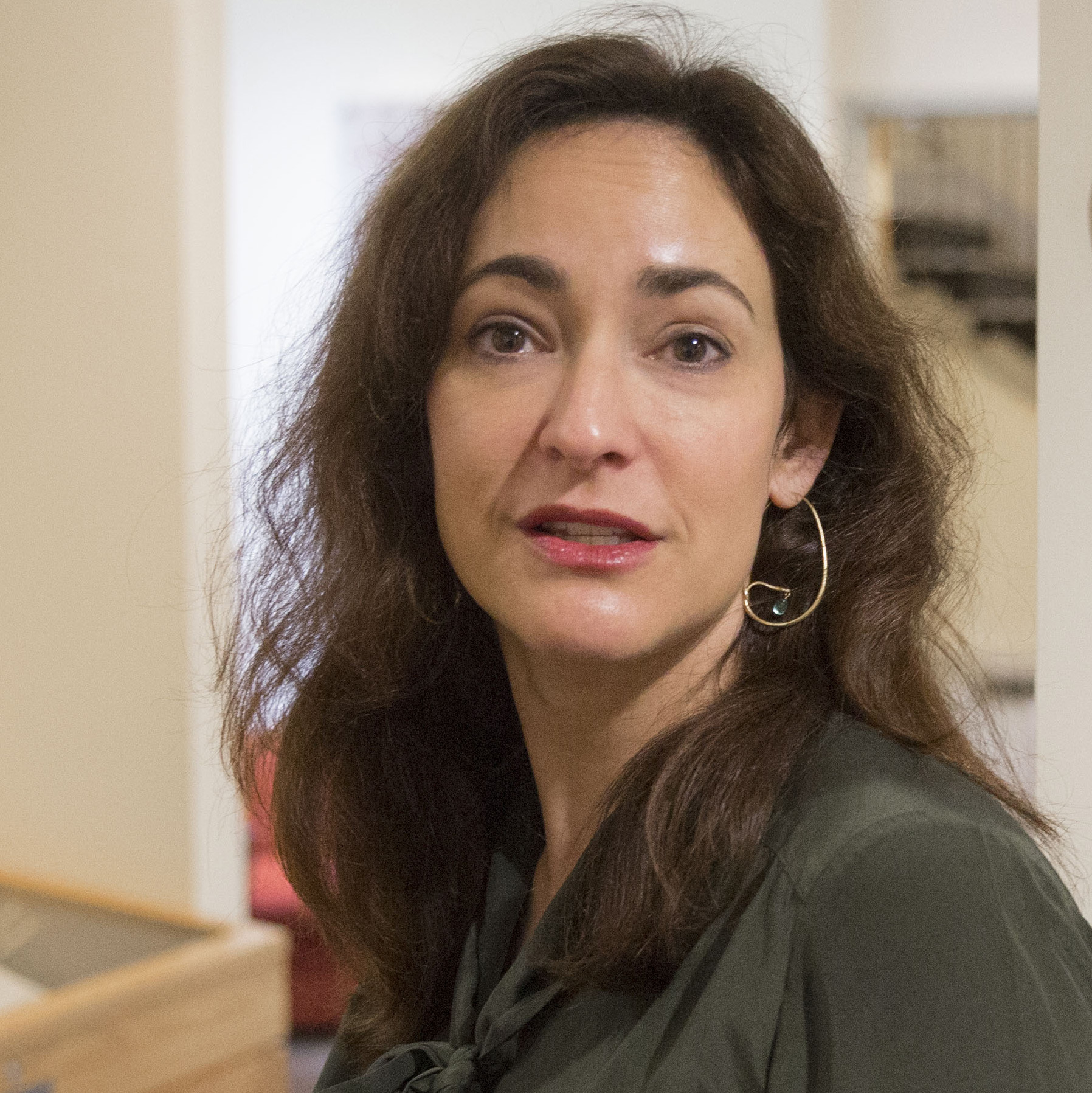
AP photos
Visions of power in ‘Barbie,’ Beyoncé, Taylor Swift
Women entertainers are smashing records this summer. Their female fans love to see it.
Women are filling stadiums across the country this summer, clad in sequins and cowboy hats, for Beyoncé’s “Renaissance” world tour. They are convening in Facebook groups to design friendship bracelets to trade on Taylor Swift’s “Eras” tour. They are flocking to movie theaters dressed in pink to see Greta Gerwig’s “Barbie.” And they are wearing their favorite team jerseys while watching the FIFA Women’s World Cup, which has attracted 22 million broadcast viewers and sold over 1.7 million tickets.
The cultural phenomenon has been called the “Barbie-Taylor-Beyoncé summer,” the “girl’s girl summer,” and the #BillionGirlSummer.
“They’re all offering visions of power as writeable within women’s worlds, which is incredibly appealing to audiences,” said Phyllis Thompson, lecturer in Studies of Women, Gender, and Sexuality. “Of course empowerment feels good because women as a group still are not actually getting that much real power. It seems like a feel-good response to that lack, which I think there’s some desperation for.”
“Eras,” which launched in March, is on track to earn more than $2 billion in sales, making it the highest-grossing concert tour of all time. “Renaissance,” which launched in May, may also surpass $2 billion by the time it ends. Gerwig’s “Barbie,” which opened in theaters less than a month ago, is on track to become the highest-grossing movie of the year and has made $574 million domestically and more than $1.2 billion worldwide. On its opening weekend — the biggest ever for a movie directed by a woman — the audience was 65 percent women.
These events, Thompson said, share a “neoliberal feminist vision of empowerment” that is attractive to women in the aftermath of the #MeToo movement and the rolling back of reproductive rights in the U.S. since the overturn of Roe v. Wade.
“Of course empowerment feels good because women as a group still are not actually getting that much real power.”
— Phyllis Thompson

File photo by Kris Snibbe/Harvard Staff Photographer
“These artists are people who’ve broken through so many barriers and are so powerful and prolific and long-standing, so there’s also something incredibly appealing about identifying with them,” Thompson said. “Their force of creative output is just massive. There’s deep meaning in becoming the kind of powerhouse that changes the industry.”
Although the U.S. women’s national soccer team ultimately lost to Sweden in the Round of 16, the team previously had won the World Cup four times. Beyoncé holds the record for most Grammy wins of all time, while Swift holds the record for most No. 1 albums by a female artist.
“What’s fascinating about this cultural phenomenon is that it’s explicitly including or reaching out to women who are not 25 and under,” Thompson said. “We have genuine adults creating this work and also being hailed as the appropriate audience, as well as 20-somethings.”
But even as women spanning generations are devouring female empowerment messaging as it appears on TV screens and jumbotrons, Thompson cautioned that at the end of the day, a show is a show. Consuming empowerment-themed media doesn’t automatically make the consumer empowered in the world they inhabit.
“There’s a tension,” Thompson said. “It’s entertainment that is woman-centered, but none of them are rewriting terms. The people who are actually getting power from it are the ones who are making the works, not the ones consuming the works.”
Swifties are spending an average of $1,300 on tickets, travel, and clothing to attend the “Eras” tour, according to a survey from research company QuestionPro, while Beyoncé fans are spending an average of $1,800.
But Thompson says the fashion trends — of women documenting the outfits they are wearing — have been an example of community-building, making fans feel like they are part of a supporting, like-minded cast.
“One thing I think is really beautiful is the degree to which there has been space to interpret,” Thompson said. “You’re not just supposed to buy the single concert T-shirt, there are a whole palette of options for identification … there are many different roles and stories on offer.”
Is this hype for female-led entertainment likely to continue past this summer? Thompson said it’s hard to say, as there is generally a “staircase pattern” to change and inclusion — an initial spike in interest that soon subsides.
“Certainly it’s going to make it appear possible, and it’s enormously powerful for young women and girls to see as plausible this kind of mass sparkle and scale for a female story,” Thompson said. “But I don’t think that necessarily means next summer will be the same.”




